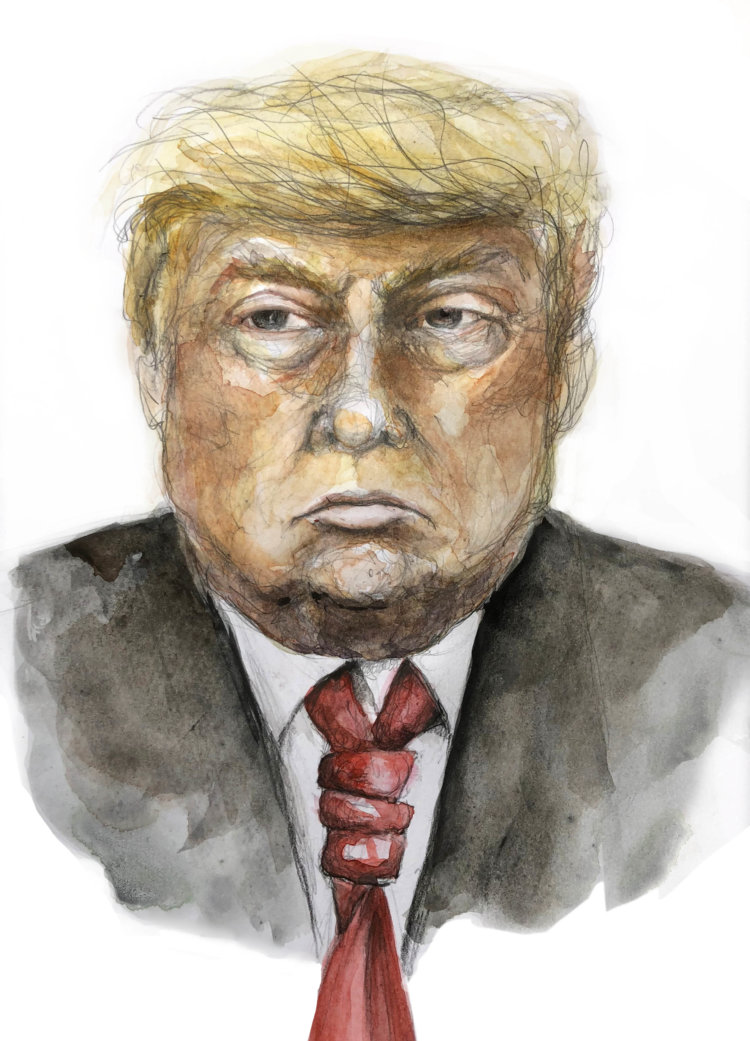
These are exciting times we live in, especially if you’re a politics junkie. Seems like every day in the reign of Trump brings a new flurry of accusations, revelations, indictments, subpoenas and lawsuits, any one of which would be fodder for a month’s worth of coverage and have the potential to topple any pre-2017 presidency. Yes, this is our collective American life now.
Still, whatever else you might want to call this state of affairs (terrifying, disgusting, heartbreaking, crazy-making), it’s been exciting and interesting as hell. What an irony that in this age of Peak TV, with approximately 500 scripted series on offer, the best, most riveting tale on television is the ongoing unreality show that is the nightly news. Specifically, Special Counsel Robert Mueller’s probe into the hacking of our 2016 elections, the investigative tentacles of which stretch from DC to Moscow with stops at Trump Tower, London, Cyprus and the Seychelles; and which includes a cast of gangsters, oligarchs, corporate titans, foreign agents, money launderers, mercenaries, and, it seems increasingly likely, an American president who fits a number of those descriptions himself.
What an irony that in this age of Peak TV, with approximately 500 scripted series on offer, the best, most riveting tale on television is the ongoing unreality show that is the nightly news.
If this were, in fact, a TV series, we’d be barreling toward at least a mid-season finale. With Mueller having issued around 100 criminal indictments; secured the cooperation of former national security advisor Michael Flynn, former Trump campaign CEO Steve Bannon, and former campaign adviser Rick Gates; and, most recently, issued a sprawling subpoena for Trump Organization documents, to name just a few headline-grabbing developments, things seem to be heating up dramatically.
And every apparent tightening of the noose, every news item trumpeting Mueller’s “closing in” on his quarry, with every inch of breadth and depth that Rachel Maddow fleshes out the narrative, liberals/progressives, conservative Never-Trumpers and anyone else aching for justice to be done have been licking their lips with the veritable taste of comeuppance in the air.
But what happens if Mueller finally drops his report on Congress’ desk…and nothing happens?
So far, Republicans, who currently control both the House and the Senate, have done nothing to check Donald Trump’s manifest abuses of power and blatant conflicts of interest. In fact, they’ve fallen squarely in line, with even long-in-the-tooth establishment types like Orrin Hatch and Chuck Grassley singing his praises. What if their fealty holds fast even in the face of a damning Mueller report? What if Congressional Republicans essentially shrug and offer up some rationalization as to why no severe action is warranted? It’s not as if this scenario doesn’t come up in cable-news roundtables, but when it does, some talking head will invariably sigh, “Well, then, we’d have a constitutional crisis.” But, just as invariably, no one ever pursues that provocative line, digs deeper on that mind-blowing “what if.” So, what exactly is a constitutional crisis? What does it mean? What will it look like on television when it happens?
We asked Arthur Lupia, political science professor at the University of Michigan’s Institute for Social Research and, aptly enough, the author of Uninformed: Why People Know So Little About Politics and What We Can Do About it [2016].
“Constitutional crisis is a term that sounds really good on television but there isn’t a clinical definition of it,” he says. The problem, Lupia explains, is our deliberately minimalist Constitution. “It is actually a really short document, and in many respects it’s quite general, so there are so many cases where it doesn’t tell you what to do.”
When it comes to the Mueller-Trump-accountability scenario, in theory a damning report from the special counsel would open the door to impeachment, said impeachment consisting of one or more “articles” classifiable as “high crimes and misdemeanors.” Impeachment, Lupia importantly points out, is a political process, not a criminal one. “A lot of people think, Mueller finds something and then they’ll be a trial like the ones they see on TV, and it’s not that at all.”
Here’s the procedural dope: A report like Mueller’s would identify and/or recommend the infractions (“articles”) it believes its findings have substantiated. The House would then vote on the articles in question; a majority “yes” vote on one or more articles would constitute impeachment, which is essentially an indictment, or accusation. Any resulting trial would take place in the Senate and be presided over by the chief justice of the Supreme Court, with the full Senate serving as the jury. But it’s all up to the House, which is now controlled by Republicans who are either smitten with or scared of Trump.
So, concludes Professor Lupia: “Congressional Republicans would need to see two things. One, a damning indictment, and Two, how their political fate is tied to the content of the report.” Again, this is about politics, not crime. For some historical context, Lupia points to America’s ne plus ultra of political scandal (so far, anyway), Watergate. “One of the reasons that Richard Nixon resigned is that his own party was ready to turn on him,” he says. “They were about to impeach him because once the information about his complicity and the cover-up came out, his own party believed that it would be damaged by continuing to stick with him.”
The cataclysmic scenario that one can’t help imagine is one wherein the Republicans simply, flatly refuse to pursue Mueller’s recommendations, in answer to which millions of outraged Americans take to the streets, paralyzing our cities and towns and, using those patriotic hordes to inflict irresistible pressure on our government to respect the rule of law and bring the scoundrel(s) to justice. (Now, that would be your season finale!)
In the event, though, Professor Lupia says Republicans will probably be smarter and subtler than that, employing “strategic communication” in order to avoid rousing an enraged rabble. “The more likely response will be: ‘This is part of a legal process, and it would be premature to pursue articles of impeachment until the legal process has played itself out.’” Said legal process would consist of discrete litigation dealing with things like campaign finance, contract violations or bank fraud that would be take place outside the impeachment process (e.g., in state courts and/or against defendants other than the president). What it would amount to is a time-buying strategy; tying impeachment proceedings to that kind of a legal sequence, Lupia points out, could take years, years during which tempers could cool and Trump and the Republicans could continue to advance their legislative agenda.
That whimper-not-a-bang scenario would be infuriating for a sizable chunk of the populace (not to mention the loyal viewers who’ve been taking in this soap opera for over a year and want closure, dammit!), but it’s not inevitable. As the Professor said, if Republicans start to see Trump as more of a liability than an asset, they may turn on him and decide to, you know, do their job. With Conor Lamb’s recent shocking flip of a deep-red district in Pennsylvania and the probability of a Democratic takeover of the House in the November midterms hovering between 60 and 70 percent, GOPers may be approaching that moment of truth sooner rather than later. Presumably, a Democrat-led House would begin impeachment proceedings faster than you could say “No puppet, no puppet–you’re the puppet!,” and leave a deeply disenchanted—and intensely pressured–Senate to do the right thing.
In the meantime, the coaster rolls on, and it’s only going to get more maddening and exciting. We can all hope for an ending that’s restorative, just, and satisfying, but in all likelihood those hundreds of hours in front of the TV won’t matter a damn compared to thirty seconds in a voting booth.


Grok Nation Comment Policy
We welcome thoughtful, grokky comments—keep your negativity and spam to yourself. Please read our Comment Policy before commenting.